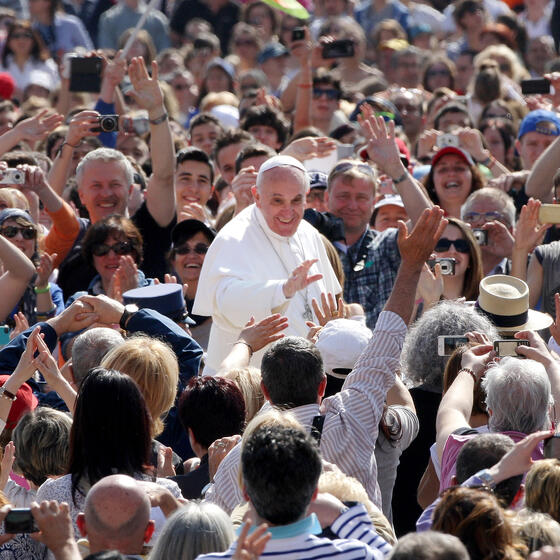Leadership
The Lessons from Pope Francis for the Class of 2025
Yale SOM leadership expert Jeffrey Sonnenfeld reflects on what the next generation of leaders can learn from the late pope.

What Can You Learn from Machiavelli?
“It is necessary for a prince wishing to hold his own to know how to do wrong.” Advice like this, offered by Niccolò Machiavelli in The Prince, made its author’s name synonymous with the ruthless use of power. But Robert Harrison suggests you should be careful before looking for leadership lessons in The Prince.

What do leaders need to understand about diversity?
In globalized, multicultural organizations, leaders need to learn to create value out of diversity.
Can you find leadership in the numbers?
Cade Massey and a former student, Rufus Peabody, developed a new way to calculate power rankings for NFL teams. Massey discusses the importance of clean, bias-free statistical analysis, and considers how a study of leadership in athletics might be applied to the business world.
Who needs leaders?
Decisions made by those at the top of major companies, nonprofits, and government organizations can affect millions of lives. Yale’s president and SOM’s current and future deans discuss how business schools can train leaders with the long-term perspective and sense of integrity to create durable value in their organizations.

Are leaders one size fits all?
Should you take charge? Should you work to build consensus? Victor Vroom argues that effective leaders are sensitive to the nuances of their organizations, cultural environments, and short- and long-term objectives.
Are CEOs today's heroes?
All cultures and all eras have their heroes—individuals who set out on a quest and overcome great adversity to attain a glorious end. Jeffrey Sonnenfeld suggests that CEOs today are living out this age-old narrative. He explains why society is looking for its heroes in the corner office.
Do we listen to opinion leaders?
Are there leaders in everyday life? A long body of literature argues that a small number of individuals have an outsize influence on what the rest of us buy, wear, and consume. But marketing professionals and scholars have been debating how to make use of these opinion leaders.
How do you lead when lives are on the line?
Combat leadership involves making countless decisions, with limited information, shifting variables, and extreme time constraints. Colonel Rich Morales ’99 and soldiers from his battalion describe their 15-month deployment in Iraq.
Q8 Alumni Forum
Yale SOM alumni weigh in on the question "Who needs leaders?"
Is x sustainable?
Will medical costs in the United States swamp our ability to pay? Can information technology continue to get faster, lighter, and more effective? Will global trade go on increasing and generating wealth? Asking if a system is sustainable forces one to project far into the future — and then to look back at the present from that vantage.